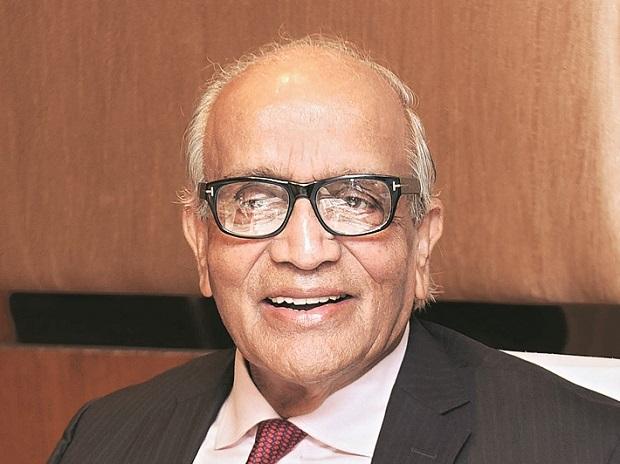Maruti Suzuki's Initial EVs Will Be In Upper Segment: R C Bhargava

Maruti Suzuki’s initial electric vehicles (EVs) will be launched in the upper end of the car market, the company's Chairman R C Bhargava said on Wednesday.
The carmaker expects to launch its first EV in FY25, he said, while answering questions of shareholders at the company’s annual general meeting here.
Moreover, as per its green energy programme, Maruti Suzuki will manufacture anywhere between 400,000-500,000 CNG cars in 2022-23, marking a big jump from about 250,000 CNG cars made in 2021-22, he said.
“The EV production is going to take place in the Suzuki plant in Gujarat and we expect EVs to come in 2024-25,” he mentioned.
Once these EVs come out, they will be in the upper segment of the market in the beginning, he noted.
“They are not going to come in the lower end of the market to start with. We hope to get good customer acceptance of these EVs because they have been very carefully designed and manufactured,” Bhargava said.
The level of indigenisation in EVs will also be higher because of the battery plant being put up, he added.
Prime Minister Narendra Modi had, on Sunday, laid the foundation stone for Suzuki’s EV battery plant in Hansalpur, Gujarat.
During the last few years, the company kept its EV plans on back burner as it was wary of high cost of acquisition and ‘range anxiety’, which is driver’s fear that the vehicle will run out of power and he or she will not be able to find a charging point. In the meantime, Maruti Suzuki focused on alternative technologies such as CNG and hybrid.
Vehicle makers such as Tata Motors, MG Motors, Mahindra and Mahindra, Hyundai and Kia Motors have already launched their EVs in the country.
The government is banking on EVs to reduce the dependency on fossil fuel and curb emissions in a country which is home to the world’s most polluted cities.
Maruti Suzuki has seen its market share drop from a peak of 51.21 per cent in FY19 to 43.38 per cent in FY22.
Its consolidated net profit was Rs 4,389 crore in FY21, which went down by 11.6 per cent to Rs 3,879 crore in FY22.
Bhargava said there are many reasons why the company’s market share and profits have fallen.
“From 2019-20, the sales of the company dropped by 16 per cent. But sales of the industry as a whole dropped by 18 per cent. This drop happened due to the price increase that happened when we were switching over from BS-IV to BS-VI.
Subsequently, Covid-19 came in 2020-21 and was still there during 2021-22,” he said.
Both BS-IV and BS-VI are unit emission norms that set the maximum permissible levels for pollutants that an automotive or a two-wheeler exhaust can emit. Compared to the BS-IV, BS-VI emission standards are stricter.
During the last few years, apart from the pandemic, there were semiconductors shortages all over the world, he added.
Also, the Ukraine-Russia conflict led to a spurt in commodity prices, which in turn led to increase in prices of cars, he explained.
He said things should start improving now as sales and production are moving up and there is some relief in sight on the two fronts: semiconductors and material costs.
“Market share will go up when we will get more and more vehicles into the SUV segment. A new Alto was launched recently. This year, you have seen a number of upgrades of new models,” he stated.
“They were delayed a bit last year because of Covid-19. A number of new models are coming up and all of these will help us to restore our market share,” he added.
Bhargava said Maruti Suzuki is looking into the area of compressed biomethane gas fuel because it has “enormous potential” for the country.
Maruti Suzuki’s contribution to its Japanese parent Suzuki Motor Corporation’s global business will go beyond 60 per cent in this financial year, he added.
Stablecoin The Future Of Currency?
The payments system is undergoing a quiet but consequential shift. What was once the exclusive preserve of central banks... Read more
BoE Loosens Capital Rules
The Bank of England has taken a significant step towards easing post-crisis regulation by lowering its estimate of the c... Read more
Monzo Looks For US Banking License
Monzo is preparing a renewed push to secure a US banking licence, four years after abandoning its first attempt when tal... Read more
Crypto Firms Push Into US Banking
America’s cryptocurrency companies are scrambling to secure a foothold in the country’s traditional banking system, ... Read more
Parallel Banking: Stablecoins Are Now Global
Parallel Banking: How Stablecoins Are Building a New Global Payments SystemStablecoins—digital currencies pegged to tr... Read more
JPMorgan Deploys AI Chatbot To Revolutionize Research And Productivity
JPMorgan has deployed an AI-based research analyst chatbot to enhance productivity among its workforce, with approximate... Read more

